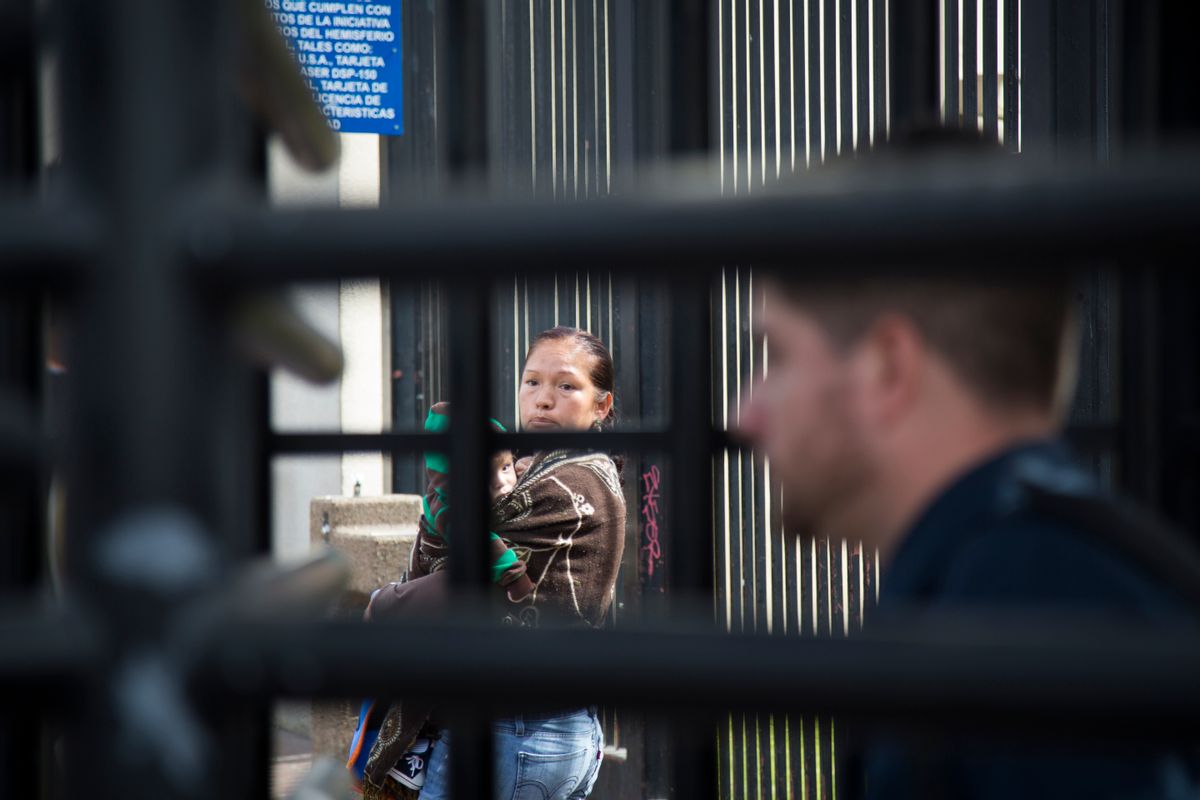WASHINGTON — Examining a tragic shooting death on the U.S. border with Mexico, a divided Supreme Court on Tuesday puzzled over the rights of foreigners to sue in American courts.
The case involving a Mexican teen slain by a U.S. Border Patrol agent's gunshot, which traveled across the border, elicited questions about how a ruling could affect victims of American drone strikes. The court battle over President Donald Trump's ban on travelers from seven majority Muslim nations also lurked in the background: While the legal issues are different, both issues have courts weighing the rights of foreigners.
A 4-4 tie could provide Judge Neil Gorsuch an early opportunity to cast a key vote if he is confirmed to the court before the term ends in late June.
The agent was on the U.S. side of the border when he fired his gun, striking Sergio Adrian Hernandez Guereca, who was on the Mexican side.
U.S. officials chose not to prosecute Agent Jesus Mesa Jr. in the killing of the Mexican teenager, and the Obama administration refused a request to extradite him so he could face criminal charges in Mexico.
Lower courts dismissed the parents' lawsuit. The Supreme Court is considering whether noncitizens who are injured or killed outside the United States can have their day in American courts.
The parents argued that the lawsuit is their only chance for some measure of justice in their son's death, and some justices appeared to agree.
In past cases, courts that have limited the right to sue have "been able to point to some alternative remedy," Justice Elena Kagan said. "And here, there really is nothing."
Kagan and the other three liberal justices indicated they would support the parents' lawsuit because the shooting happened close to the border in an area in which the two nations share some responsibilities, including for upkeep.
But Justice Anthony Kennedy and other conservative justices suggested that the boy's death on the Mexican side of the border was enough to keep the matter out of U.S. courts.
Kennedy noted the court has been reluctant to allow civil rights lawsuits like the one the parents filed, especially when they may affect international relations. "This is a sensitive area of foreign affairs where the political branches ought to discuss with Mexico what the solutions ought to be," Kennedy said.
Other justices worried about a decision that could open courthouse doors to victims of U.S. drone strikes, or other military actions. "How do you analyze the case of a drone strike in Iraq where the plane is piloted from Nevada?" Chief Justice John Roberts asked.
Lawyer Robert Hilliard, representing the parents, said the court easily could limit its decision to incidents that occur near the border.
The Trump administration, like its predecessor, is arguing that the location of the teenager's death, in Mexico, should be the end of the story.
Deputy Solicitor General Edwin Kneedler told the court that even if the victim had been American and all the other circumstances were the same, the lawsuit should be thrown out.
But Kneedler and Mesa's lawyer both acknowledged that someone killed by an agent on the U.S. side of the border could sue.
"That doesn't make a whole lot of sense, does it? To distinguish these two victims?" Justice Ruth Bader Ginsburg said.
Even if the justices were to rule that the lawsuit can be filed, Sergio's family still would have to prevail on two other issues. The government said the parents' claims under the Fourth Amendment should be dismissed because its protections against unreasonable search and seizure don't apply to noncitizens outside the U.S.
Privacy experts are watching the case because it could affect how courts treat global internet surveillance, particularly when foreigners are involved.
Mesa also should be shielded from liability for the shooting, Mesa and the government argued in court papers.
Sergio's shooting was not an isolated border incident. Parents of another teenager killed in Nogales, Mexico, by a federal agent in a cross-border shooting have filed a civil rights lawsuit that is being delayed until the Supreme Court rules.
While Kagan said Tuesday that U.S. officials almost never bring criminal charges in these cases, federal prosecutors are pursuing second-degree murder charges against Agent Lonnie Swartz in the death of Jose Antonio Elena Rodriguez, 16. Swartz was on the Arizona side of the border when he shot the teenager.
A decision in Hernandez v. Mesa, 15-118, is expected by late June. In the event of a tie vote, the court could order new arguments if Gorsuch is on the bench.



Shares